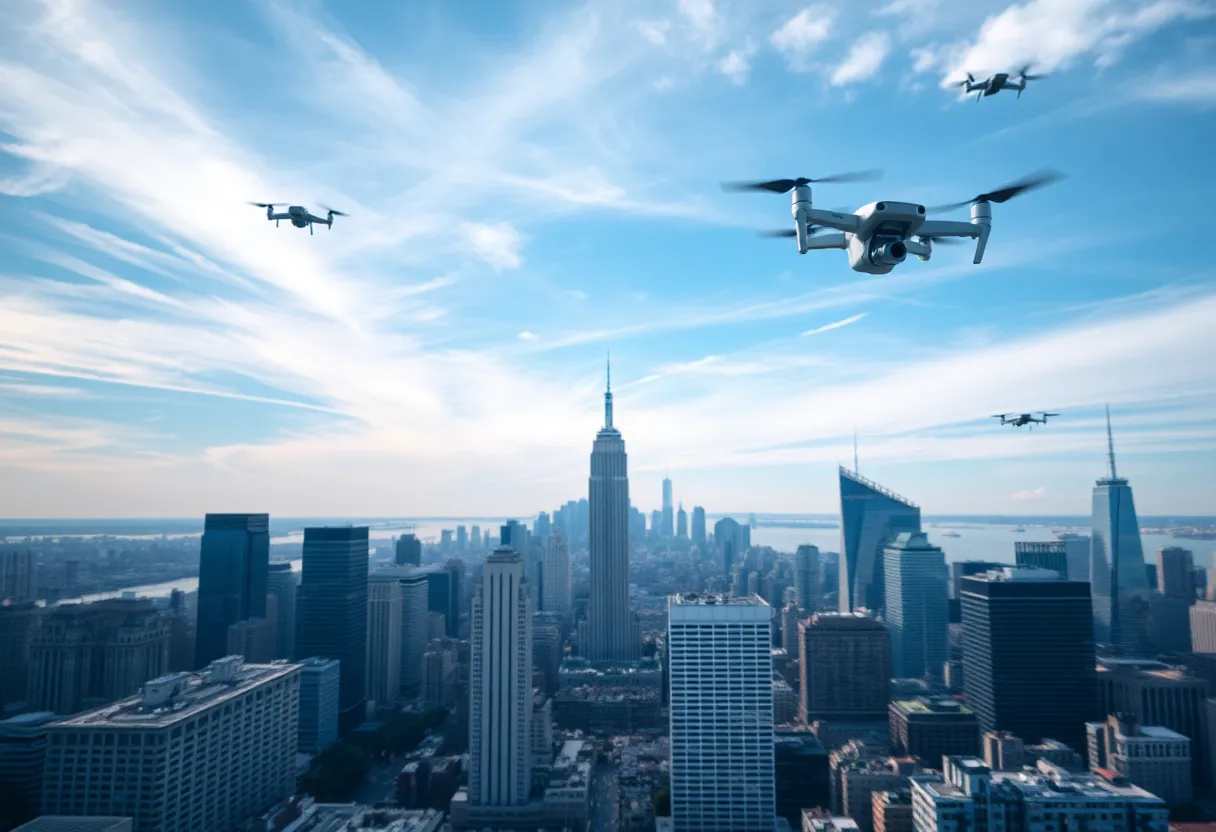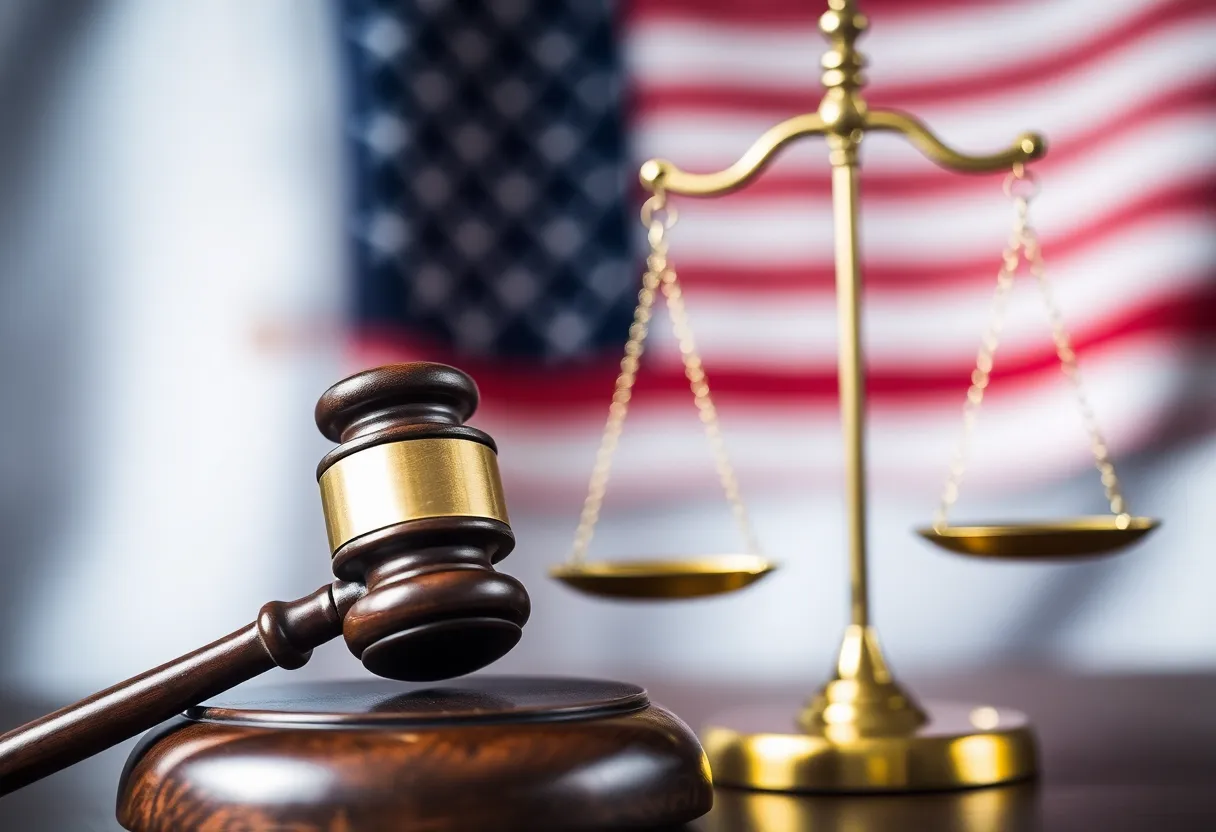News Summary
A surge in mysterious drone sightings has raised legal questions across several U.S. states, especially in New York and New Jersey. As the public questions the legality of these drones, there’s increased focus on federal and state regulations governing their use. From commercial operation to hobbyist flying, understanding the legal terrain is vital for drone enthusiasts. Notably, Louisiana has enacted specific laws regulating drone activity, while law enforcement investigates these incidents, ensuring public safety is maintained.
Mysterious Drone Sightings Spark Legal Review Across U.S. States
Across the beautiful streets of America, a curious phenomenon is creating quite a buzz—mysterious drones have been spotted buzzing overhead in states like New York and New Jersey. This unusual uptick in drone sightings is causing people to raise their eyebrows and ask, “What do the laws say about these high-flying gadgets?” The situation has opened a can of worms regarding the legal framework surrounding drone operations in different states.
Diving into the Legal Sea of Drones
Drones are a relatively new player in the aviation game, and with new technologies often comes new confusion. Federal regulations dictate that anyone flying a drone must comply with certain rules, which can feel like navigating a maze. To operate a drone commercially, prospective drone pilots need to follow the FAA’s Small UAS Rule and pass the Aeronautical Knowledge Test to score their Remote Pilot Certificate.
For our hobbyist friends, things are a little less stringent, but there are still essential guidelines to follow. The Recreational UAS Safety Test is required, along with adhering to the FAA’s recreational model aircraft rules. Oh, and let’s not forget, if your drone weighs more than 0.55 pounds, you’ll need to cough up a $5 registration fee to the FAA!
Understanding Restrictions and Responsibilities
Drone usage comes with its own set of rules—including restrictions on airspace, altitude, and the ever-important line-of-sight requirement. While government employees can either follow FAA rules or secure a federal Certificate of Authorization, all drone operators need to be aware of their legal responsibilities.
For example, did you know that Louisiana has put in place eight specific laws about drone operation? To highlight a few:
- SB 69 asserts that only the state can regulate UAS, overriding local laws.
- SB 73 makes it a crime to intentionally cross a police cordon with a drone.
- HB 19 prohibits drones from surveilling schools, with stiff penalties for violations.
Other laws focus on drone registration and possible penalties for unauthorized surveillance—serious stuff if you’re tempted to sneak a peek where you shouldn’t.
The Buzz Builds
With mysterious drone sightings intensifying in Northern states while Louisiana’s drone activity remains relatively calm, it’s important to note that local law enforcement claims these drones do not pose a threat to public safety. Still, the FBI and other agencies are on high alert, investigating these unusual happenings and asking the public for any information that could help unravel the mystery.
But here’s a reality check—under federal law, it is illegal to shoot down any aircraft, drones included. Trying to take action like that could land you with civil penalties and even criminal charges. The stakes are high—damaging an aircraft could lead to fines and potentially a hefty prison sentence!
So, You Want to Fly a Drone?
Many drones are delightful gifts and easily accessible in stores, but you must know about the necessary regulations and certifications before you take to the skies. If your drone tips the scales at over 249 grams, it must be registered with the FAA. There’s also the trust test for budding hobbyist pilots to familiarize themselves with the laws of the land.
In places like Shreveport, you’ll find additional restrictions due to proximity to airports, which limits where you can fly your drone. But there’s hope! Resources like the Aloft Air Control app can help users identify legal flying zones, ensuring you stay on the right side of the law.
While there’s no specific age requirement for FAA registration and testing, adult supervision is highly recommended for those under 16. So, if you’re thinking about soaring through the skies with your drone, stay informed and play it safe!
As drone technology continues to evolve, so too will the laws surrounding their use. Staying informed will not only keep you within the bounds of the law but also ensure that you can keep enjoying the thrill of flying high!
Deeper Dive: News & Info About This Topic
HERE Resources
FAA Imposes Drone Flight Restrictions Over New Jersey to Protect Critical Infrastructure
Drones Spark Curiosity and Speculation Over Shreveport Skies
Additional Resources
- Shreveport Times: Louisiana’s Laws for Drones
- Shreveport Times: Can You Shoot Down a Drone?
- News Journal: Drone Rules, Regulations, and Certifications
- Google Search: Drone Regulations in the U.S.
- Wikipedia: Drone







